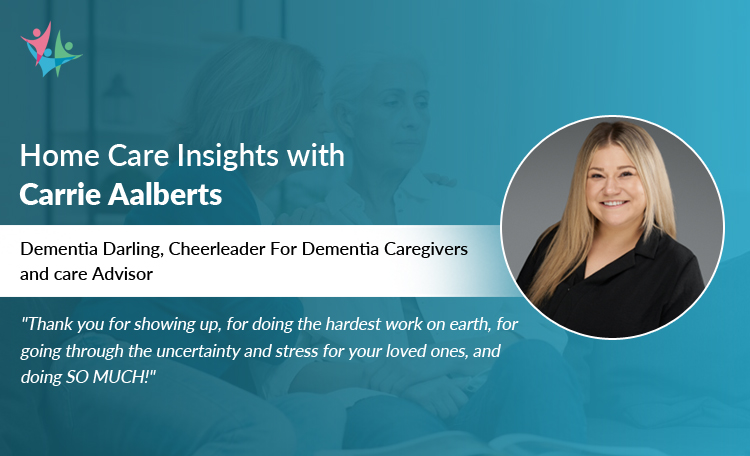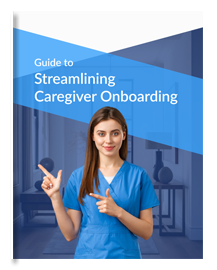In Conversation with Carrie Aalberts to Bring Her Insights on Supporting Dementia Caregivers
Supporting caregivers in caring for elderly individuals with dementia is crucial for comprehensive and compassionate care. The challenges inherent in dementia care necessitate specialized assistance and unwavering support to navigate its complexities effectively.
Caregivers require a nuanced understanding of behavioral changes, emotional support, and practical guidance in managing daily tasks. Comprehensive support systems, educational resources, and access to respite care are pivotal in alleviating caregiver stress and preventing burnout. Empowering caregivers with knowledge, coping strategies, and a supportive network fosters an environment conducive to enhanced care, positively impacting caregivers and the elderly under their compassionate watch.
To shed some light on the same, we interviewed a home care industry expert to bring her perspective on caring for those who provide care to light.

Who Did We Interview?
Carrie, a dedicated Care Advisor at Eugeria, is a skilled public speaker, educator, and content creator specializing in dementia care. With a Master’s in Human Development and Family Studies, she’s a Certified Dementia Practitioner and Montessori Dementia Professional. Known as @DementiaDarling, she champions caregiver support and community engagement.
Let’s get started with knowing what our expert thinks of the home care industry:
Question 1: What, in your opinion, can caregivers do to support seniors with dementia?
Caregivers supporting people with dementia can help foster a familiar, calm, loving, adaptive environment to encourage engagement in their daily lives.
Question 2: Do dementia patients need to make lifestyle changes to minimize the impact?
It is good for ALL of us (regardless of a dementia diagnosis) to maintain a balanced diet, exercise, stay social, keep our minds stimulated, minimize stress, get sleep, and more! All of these help to positively impact our quality of life.
Question 3: How should family members and caregivers communicate with dementia patients?
Learning how to communicate with individuals living with dementia is essential to a good care partnership. Use clear, simple language, maintain eye contact, be patient and give them time to process/respond, listen, do not doubt them, avoid quizzing or correcting, and use body language to communicate.
Question 4: Do caregivers and family members need to take certain steps to make the elderly’s house dementia friendly?
Removing clutter is essential! Keep only essentials and important nostalgic items, as needed. Ensure they have good lighting, no rugs to help avoid falls, use labels or signs to help navigate if/when needed, keep needed items within reach, use contrasting colors to help make things noticeable, alarms/locks if needed, cameras if needed, etc.
Question 5: What advice do you give caregivers dealing with dementia in older adults?
Firstly, I want to say THANK YOU! Thank you for showing up, for doing the hardest work on earth, for going through the uncertainty and stress for your loved ones, and doing SO MUCH! I truly cannot thank you enough. I know it is extremely difficult and annoying to hear, but I encourage self-care as much as possible. Your self-care may look different through this season of life, but please make intentional time for yourself. Let yourself be sad and mad, talk about your feelings, seek support and help!
There will be joy on this journey; you may have to look for it or create it, but it’s there! I am sending the biggest hug to you; please know you are NOT alone.
In Conclusion
Supporting caregivers of elderly individuals with dementia is pivotal in creating an environment that fosters familiarity and engagement. Encouraging lifestyle adjustments aids in minimizing the impact of dementia, benefiting both the patient and caregiver. Effective communication techniques build essential connections. Crafting a dementia-friendly living space involves safety measures and decluttering for easy navigation. Gratitude and advice for self-care are crucial for caregivers, acknowledging their dedication.
Amidst the challenges, acknowledging the presence of joy in the caregiving journey reinforces positivity and a sense of community. Caregivers are reminded that they are not alone, receiving assurance and support on this demanding yet rewarding path.
